Table of Contents
ToggleIn today’s fast-paced business world, keeping up with the latest technology is as crucial as finding that last slice of pizza at a party. Enter the business cloud ERP SaaS platform—a game-changer that’s making waves and turning heads. Imagine having all your business processes streamlined, accessible from anywhere, and not requiring a degree in rocket science to use. Sounds dreamy, right?
Gone are the days of juggling spreadsheets and praying your data doesn’t vanish into the digital abyss. With a cloud-based ERP solution, businesses can harness the power of automation, collaboration, and real-time insights—all while sipping their morning coffee. This isn’t just software; it’s a ticket to efficiency and growth, and it’s time to hop on board.
Overview of Business Cloud ERP SaaS Platform System Online
Business cloud ERP SaaS platforms provide a comprehensive solution for managing various business functions online. Organizations utilize these systems to integrate processes such as finance, human resources, supply chain, and customer relationship management into one cohesive platform. Such integration enhances data accuracy and accessibility, facilitating better decision-making.
Real-time insights play a crucial role in driving efficient operations. Businesses leverage cloud ERP systems to access up-to-date information anywhere, anytime. Teams can collaborate more effectively through shared data, reducing redundancy and minimizing errors.
Cost-effectiveness emerges as another significant advantage. Companies benefit from subscription models, avoiding large upfront investments associated with traditional ERP systems. This approach also leads to predictable budgeting, as expenses remain consistent throughout the subscription period.
The scalability of cloud ERP systems permits businesses to adapt to growth without major disruptions. With the ability to add or remove functionalities quickly, organizations can customize their solutions based on their needs. As a result, resource allocation becomes more efficient, enabling companies to focus on core competencies.
Security remains a priority for cloud ERP providers. Advanced security measures, including encryption and regular backups, protect sensitive business data from unauthorized access and loss. Compliance with industry regulations further ensures that organizations maintain data integrity and customer trust.
Implementing a cloud ERP SaaS platform promotes agility within organizations. Rapid deployment and user-friendly interfaces allow for swift onboarding of employees. Overall, a robust cloud ERP system enhances operational efficiency, fosters collaboration, and supports sustained growth through technology.
Key Features of Business Cloud ERP

Business cloud ERP platforms provide distinct advantages that support organizations in adapting to dynamic market conditions.
Scalability and Flexibility
Scalability ensures businesses can easily adjust resources as they grow. Companies benefit from on-demand access to additional features or user licenses without complicated upgrades. Flexibility in choosing functionalities allows organizations to tailor solutions based on specific needs. Rapid changes in the market are manageable, facilitating quick responses to new opportunities or challenges. This adaptability is crucial for maintaining competitiveness in evolving industries.
Integration Capabilities
Integration capabilities play a pivotal role in optimizing operations. Cloud ERP systems connect seamlessly with different applications, consolidating data across finance, human resources, and supply chain management. This centralization enhances information flow and accessibility, resulting in reduced errors. Automated data updates further improve accuracy, allowing for timely decision-making. Organizations experience more efficient workflows when using integrated platforms, promoting collaboration among teams.
Benefits of Using a Business Cloud ERP SaaS Platform
Cloud ERP SaaS platforms provide numerous advantages for businesses. They enhance efficiency, streamline operations, and allow for better resource management.
Cost-Effectiveness
Cost-effectiveness stands as a key benefit of cloud ERP SaaS platforms. Organizations avoid substantial upfront expenses by adopting subscription-based pricing models. This approach enables predictable budgeting, essential for financial planning. Companies often retain resources that would otherwise support traditional ERP systems, leading to substantial long-term savings. With reduced IT overhead, businesses can allocate funds to growth initiatives. Investing in cloud solutions avoids the hidden costs tied to software upgrades and maintenance. Ultimately, these financial advantages empower businesses to thrive.
Accessibility and Convenience
Accessibility and convenience define the user experience with cloud ERP solutions. Employees can access essential data from any location with internet connectivity, ensuring seamless operation. This flexibility fosters collaboration among team members, regardless of their physical location. Real-time updates on information prevent delays and improve decision-making. Simplified user interfaces make it easy for employees to adapt quickly to the platform. With comprehensive dashboards, individuals can monitor performance metrics effectively. Businesses reap significant efficiency rewards by eliminating traditional barriers associated with legacy systems.
Challenges and Considerations
Several challenges accompany the implementation of business cloud ERP SaaS platforms. Organizations must address various factors to maximize their benefits.
Data Security and Privacy
Data security and privacy represent primary concerns for companies adopting cloud ERP systems. Sensitive information requires robust protection against breaches and unauthorized access. Businesses should select platforms that offer advanced encryption, secure user authentication, and regular security updates. Compliance with industry regulations, such as GDPR or HIPAA, becomes essential to maintain trust with customers and stakeholders. Regular audits also help identify potential vulnerabilities, ensuring ongoing protection of confidential data.
Vendor Reliability
Vendor reliability plays a crucial role in the success of cloud ERP implementations. Organizations depend on their chosen providers for system uptime, customer support, and continuous improvements. Researching vendor reputation and track record is vital before selecting a platform. Companies should prioritize vendors with a history of stability, solid customer reviews, and responsive support channels. Establishing a clear service level agreement (SLA) guarantees accountability, ensuring businesses receive the necessary support to address issues quickly and efficiently.
Adopting a business cloud ERP SaaS platform is a strategic move for organizations aiming to thrive in today’s fast-paced environment. These systems not only streamline operations but also enhance collaboration and data accuracy. The ability to access real-time insights empowers teams to make informed decisions swiftly.
With cost-effective subscription models and scalability options, businesses can adapt to changing needs without the burden of hefty upfront investments. Prioritizing security and vendor reliability ensures that sensitive information remains protected while maintaining compliance with industry standards.
Ultimately, leveraging cloud ERP SaaS platforms positions businesses for sustained growth and agility, making them more competitive in their respective markets.




